Reaching Common Ground in Latin’s Common Areas
Latin School’s Upper Commons has two personalities: with teachers and without. You will either hear students loudly comparing TikToks or nervous silence with intermittent whispers. There will either be a crowd gathered around one of the long tables limited to 12 seats or an empty passageway with an occasional student briskly walking by. And without a faculty member managing the collaboration rooms, chaos will erupt, with students who have not booked the room likely filling it far over capacity.
Due to the incapability of Latin students to control themselves in an area meant for quiet study, teachers (specifically librarians Gretchen Metzler and Lisa Patton) are forced to carefully guard the Upper Commons and collaboration rooms from commotion. New policies such as closing one of the doors to the Upper Commons and forcing students to book collaboration rooms online in advance are attempts to calm the space.
Latin’s Innovation Studio Manager Shane Enderle sent out a how-to email on October 3 detailing how simple it is to book a collaboration space through the scheduling software Skedda by scanning a QR code on the door of each room. “[Skedda] should hopefully be seen as an improvement for students because they can now schedule time whenever and wherever they want, up to a week in advance,” Mr. Enderle said. In previous years, one student would simply sign a sheet of paper to reserve a quiet room for themselves and anyone of their choosing. While it is arguably just as simple to scan a QR code to reserve a room, students have bashed the new system as it requires them to reserve one seat at a time, with a time limit, as opposed to the entire room.
Many expressed their dismay with the new policies regarding resources in the Upper Commons. Junior Lizzy Wells said, “I feel like we should be able to utilize the quiet rooms more than four hours a week.”
Others acknowledge the reason the quiet spaces are restricted but don’t believe that should be the case.
“Quiet rooms are meant for interactions and collaborations,” junior Adelaide Taylor said. “I understand why quiet rooms are run how they are, but sometimes it can defeat the purpose.”
However, Ms. Metlzer detailed her reasons for each new protocol in the school. Every rule or change has the goal of preserving the Upper Commons as a sanctuary for quiet study while allowing collaboration and equality.
“We wanted a system that would allow students to have equitable access to the spaces,” Ms. Metzler said regarding the time limit in quiet rooms. “We don’t want to police what goes on in the places, but we also need everybody to have the ability to use that space.”
Additionally, many students have the false impression that collaboration rooms are soundproof. This leads to more noise and possibly embarrassing conversations seeping through the cracks in the glass doors. According to Ms. Metzler, the lack of privacy in the collaboration spaces is just one design flaw in the Upper Commons, as the most difficult obstacle for faculty to deter has been the controversial door that used to be an entrance and exit into the space.
The Upper Commons formally contained a notoriously bustling hallway with students constantly disrupting the quiet space. After Deans Bridget Hennessy and Nick Baer announced that this door would be locked permanently for everyone except for teachers on the first day of school, the student body was outraged. People were reluctant to abandon this sacred social passageway and irritated by having to inconveniently pass through the Lower Commons.
Sophomore Ryder Shiffman sympathizes with his peers but has attempted to look beyond the injustice. “I was initially very unhappy with the decision,” he said. “But, I have grown to tolerate it.”
To help make amends and possibly lead students and faculty to common ground, some teachers have not used their privilege to this door as an act of solidarity. “I try to lead by example by not using the door,” French teacher Julie Cousin said. “It’s probably only 15 more steps.”
Math teacher Zach McArthur, whose office in the Math Center is located in the Upper Commons, has been “pleasantly surprised” with the results of new policies such as locking the door. “The old seniors leaving is a factor, but so is the closed door by the kiosk. It is a beautiful locked door.” Although moving the Math Center did decrease the number of collaboration rooms from six to five, Mr. McArthur said he believes the benefits of creating a space for students to receive math help are substantial.
“I love that I get to interact with tons of students who drop by and just run out into the Upper Commons and help kids I know,” he said.
Ms. Metzler agrees that locking the door permanently is the main factor in reducing noise in the Upper Commons. While the faculty agree that the new policies have initiated progress, Ms. Metzler remains optimistic that students and teachers will be able to come to a compromise that benefits all. “We encourage feedback, we want to listen, we want to respond. This is a student-centered space, so hearing things is important to us. We just can’t guarantee change.”
As the struggle between students and teachers remains over the purpose and policies of the quiet spaces, common ground sits nearby. Both sides have repeatedly expressed their desire to improve the space for the entire Latin community. Although the end to the conflict may not yet be in sight, senior Ethan Mullens is one voice hoping to mend the divide between his peers and those who enlighten them with knowledge every day. “There has to be some sort of give and take with the process, compromises we have to make for having a better system.”






































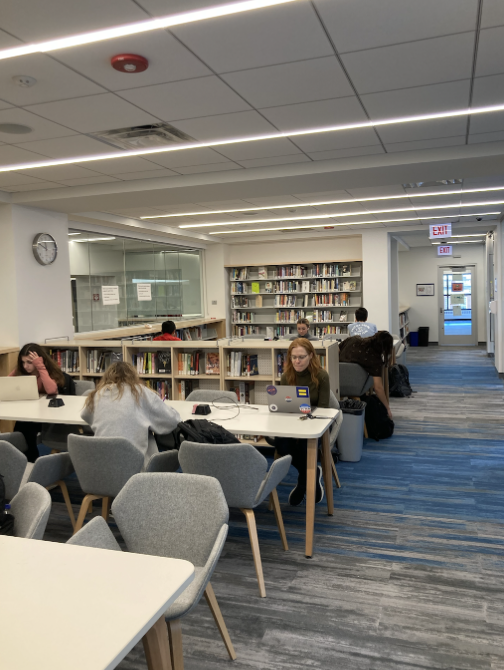
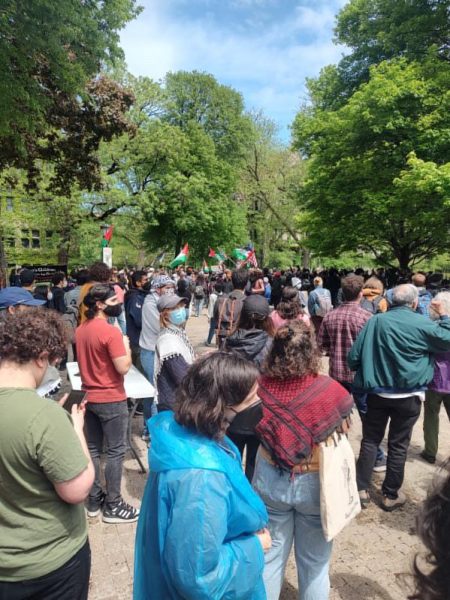
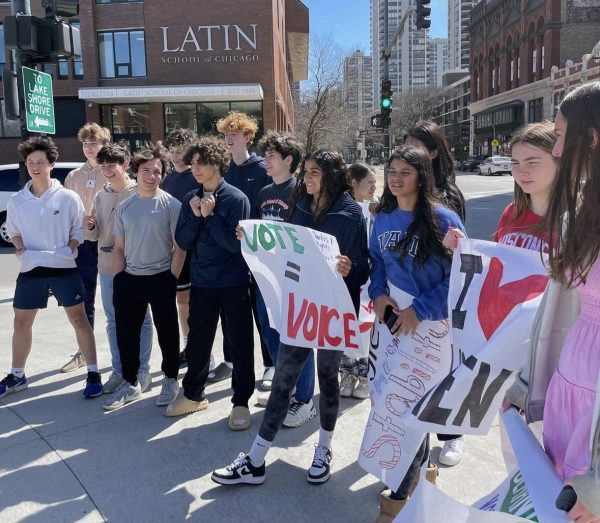




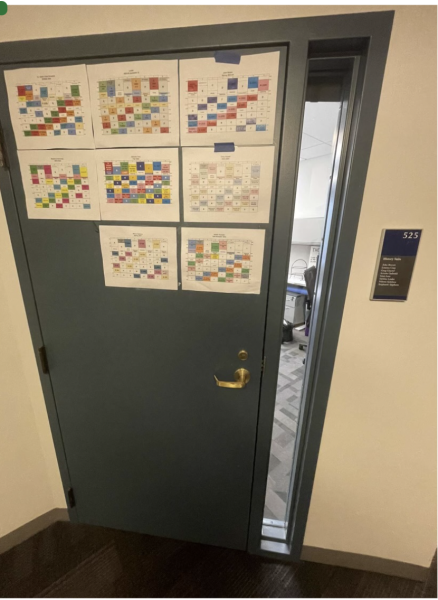
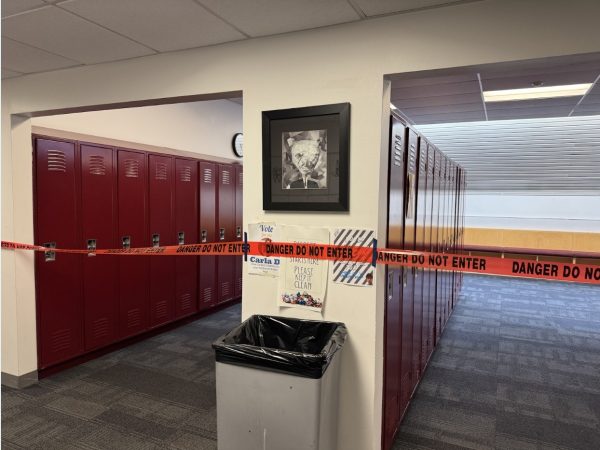

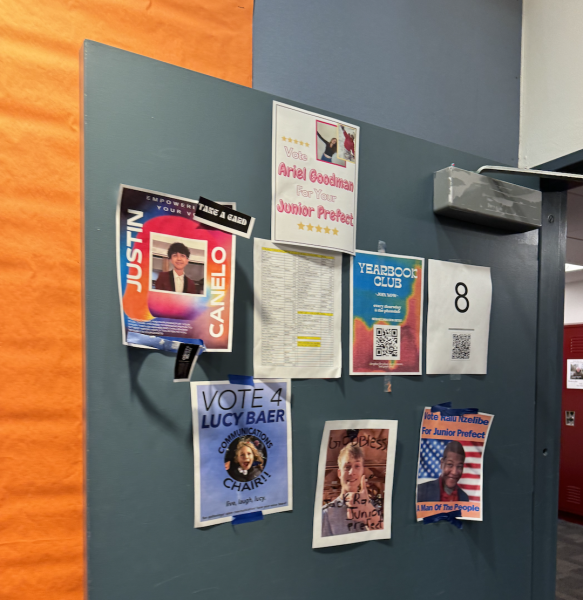

Mr. McArthur • Nov 29, 2022 at 7:49 pm
Good article, Spencer. As you wrote, I have been pleasantly surprised by the generally thoughtful use of the quiet area of the LC by students this year. Most of the time the tables are used for independent work and only a few times — when noise levels have reached post-Josh Allen TD run decibels — have I had to come out to shoo someone away to the cafeteria or hallway. I want to thank the librarians for their consistent presence in the space and I hope that students are enjoying the existence of quiet areas in the upper school… quiet areas that were few and far between as recently as five years ago.